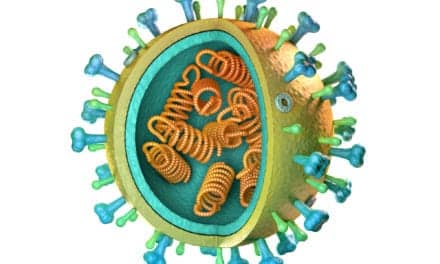The implementation of a universal surgical mask policy led to a notable reduction in respiratory viral infections in patients who underwent hematopoietic stem cell transplants at Duke University Medical Center.
According to Anthony D. Sung, MD, medical instructor in the department of medicine at Duke University, and colleagues, respiratory viral infections (RVIs) affect up to 30% of hematopoietic stem cell transplant (HSCT) patients and can lead to potentially deadly lower respiratory tract infections.
“Although modern infection control practices have helped decrease viral infections and curtail outbreaks, RVIs remain problematic after HSCT,” Sung and colleagues wrote in Clinical Infectious Diseases.
Sung and colleagues created a policy that required all individuals with direct access to an HSCT patient — including medical and support staff, visitors, caregivers and patients — to wear a surgical mask while within 3 feet of the patient, regardless of the season or whether the patient was symptomatic. The policy took effect in December 2009, and the study ran from Jan. 12, 2010, to Jan. 11, 2014.
The investigators compared the results with those of patients who received an HSCT between Dec. 1, 2003, and Nov. 30, 2009.
Among patients who received HSCT while the mask policy was in place (n = 911), the overall incidence of RVI was 4.4%, down from 10.3% in patients who underwent transplantation during the pre-mask period (n = 920). Much of the overall decrease was seen in parainfluenza virus 3 (PIV3), where incidence dropped from 8.3% to 2.2%.
Sung and colleagues observed significant decreases in RVIs among allogeneic (16.9% to 8.3%) and autologous transplant patients (5.7% to 2.6%).









